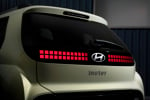Executives questioned during the preparation of the latest dealer opinion survey were also split over whether internet sales leads needed to be followed-up in a different way to traditional leads.
Overwhelmingly, dealers were confident everything possible was done in showrooms to close a deal and prevent prospective purchasers from walking out and buying elsewhere.
The questions were designed to ascertain the level of confidence at dealerships during the early stages of a period of major change. The shake-out from Government acceptance of the Competition Commission report into new car prices has yet to be felt, and the Block Exemption review looms.
From September 30, 2002, a new set of EU automotive trade rules must be in place and opinions are divided over the likely depth of change.
The first question put to the participating motor retail executives was whether they were sure nothing else could be done to finalise a sale, bearing in mind the protracted Competition Commission prices inquiry.
Asked whether they were sure everything possible was being done in the showroom to convince people to make a purchase, 90% replied 'yes'. That means only one in 10 believed there was a possibility they could improve their sales performance.
With that thought in mind, they were asked whether sales staff had been given enough training to be effective. Again, 90% replied in the affirmative, but from company to company this either reflects a real raising of standards through training, or suggests an element of complacency.
One of the key questions in the survey was whether sales executives had been briefed on what to say if customers asked about prices quoted by non-franchised new entrants such as Virgin Cars.
Eighty-seven per cent said they had briefed staff, but the 13% who replied 'no' represents around one in eight where there had been no briefing. Many leading AM100 groups have strategies so that random calls to check prices are treated as a chance to make contact with a prospective purchaser.
The next - and fundamental - question was whether customers believed the reply, which might be based on the limited choice of some specialist importers. The largest proportion (48%) thought people believed them but 43% thought they did not, and another 9% said “sometimes”.
If, as seems likely, the way cars are sold is going to be loosened up through radical changes in Block Exemption, dealers are going to need to adjust. Some of the dotcom specialists will fade away but others will remain in business, either operating alone or in partnership with other companies.
Some of the biggest groups, such as Pendragon, Dixon Motors and DC Cook, have announced internet enterprises. All franchised dealers need to be aware of changing and wider competition, and decide how to respond.














Login to comment
Comments
No comments have been made yet.